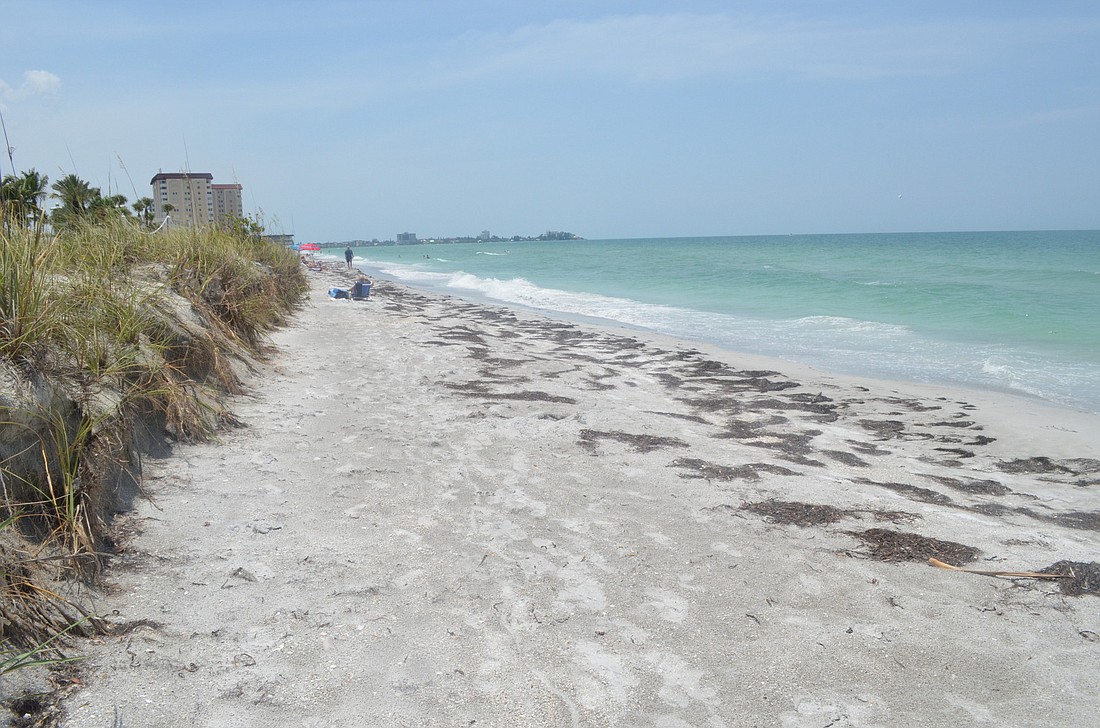- April 17, 2024
-
-
Loading

Loading

Amid the controversy surrounding the Army Corps of Engineers plan to renourish Lido Beach with sand from Big Pass, the Sarasota County Commission voted Monday in support of a less contentious shoreline-preservation measure.
The city of Sarasota is working with the Federal Emergency Management Agency to repair damage the Lido shoreline incurred during Tropical Storm Debby in 2012. Currently, the project calls for the addition of 120,000 cubic yards of sand along the critically eroded shoreline, less than 1/10th of the sand the Army Corps project would add.
Still, Lido residents say their beach needs immediate help — and Siesta Key residents, worried about the potential effects of dredging Big Pass, said they wanted to see the post-Debby project executed to its maximum potential. If a July survey of the beach shows erosion incurred since the initial post-Debby survey of Lido’s shoreline, the project could be expanded to cover that loss of sand, City Engineer Alex DavisShaw said.
One concern the city had regarding the potential expansion of the post-Debby project was cost, DavisShaw said. In addition to paying $9 per cubic yard of sand, the city would also have to cover half of the mobilization cost, which totaled $1.8 million for the initial 120,000 cubic yards.
To lend immediate support to the Lido shoreline, the County Commission unanimously voted to help DavisShaw and the city maximize the post-Debby project. The commission indicated funding for the project could come from the county’s tourist development tax; $15 million in tourist development tax funding is currently reserved for beach renourishment.
“If you go out and look at this beach, it’s not in great shape,” County Commissioner Joe Barbetta said. “We’re in trouble.”
The interim project is not intended to serve as a replacement for the Army Corps proposal. To further expand the post-Debby project, the city would have to apply for a new permit. DavisShaw said the city was intent on renourishing the shoreline before the 2015 turtle-nesting season begins in May, and that it would be hard to obtain a new permit that quickly.
In total, the sand source being used for the post-Debby project has 355,000 cubic yards of available sand, DavisShaw said. The Army Corps project calls for the use of 1.3 million cubic yards of sand initially, with the beach renourished every five years for the next 50 years. Still, commissioners encouraged DavisShaw to explore all potential avenues for making the most of the post-Debby renourishment.
“I think the need is obvious, and I can’t believe we can’t make this work,” County Commissioner Nora Patterson said.
Carl Shoffstall, president of the Lido Key Residents Association, said the group still supports the Army Corps’ proposal, but that the shoreline was in need of immediate attention, too. As a result, he also supported doing anything to get the most possible sand from the FEMA project.
“If we have a catastrophic or even a small storm, we’re in serious trouble,” Shoffstall said.
In the coming months, the county will evaluate the Army Corps of Engineers’ report on the Lido renourishment project, which showed no adverse effects to navigation routes or the Siesta shoreline. Staff members said they would work on developing the criteria for a potential county-funded peer review of the report.
On July 23, the Army Corps of Engineers will hold two public workshops to get feedback on its report and proposed project. The county is expected to revisit the topic at an August meeting.
Contact David Conway at [email protected]